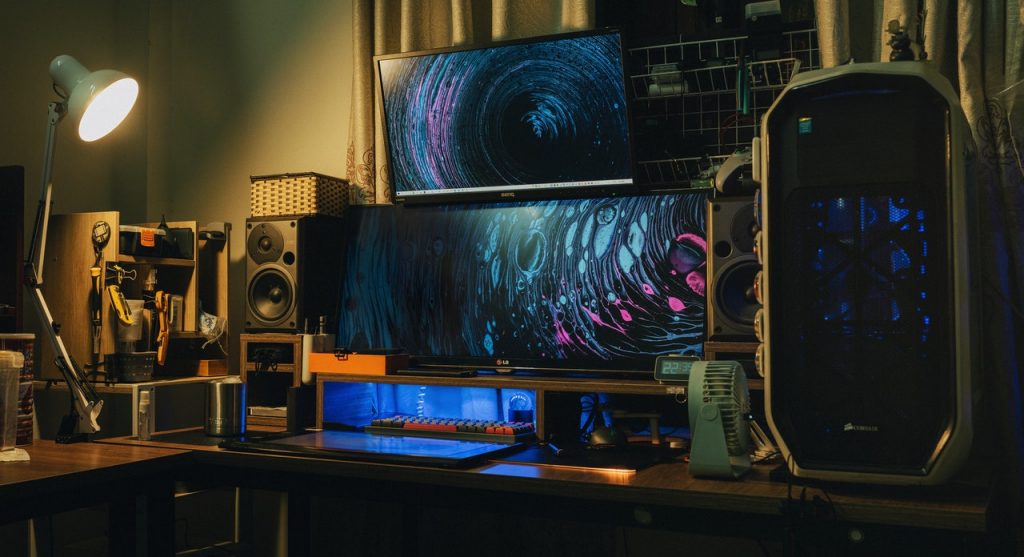Gaming has quickly become one of the favorite past times of many Americans. The industry rakes in about $100 billion in revenues every year. It has surpassed both the sports and movie industry when it comes to income, and its projected revenue is expected to grow even more prominent in the years to come.
But this multi-billion dollar industry is not one without setbacks. For instance, people who work in this industry, specifically those who make video games, have to spend most of their time and life working on video games. If they don’t, the company will suffer a severe backlash like CD-Projekt Red did this year.
A Merciless Industry
The video game industry is relentless when it comes to production and sales. Consumers in the industry are all about what’s here and now, and if you don’t deliver, they will tear you apart. The industry is also saturated with both veterans and indie companies alike, all wanting a piece of the billion-dollar pie. This makes the sector volatile. At one moment, big companies such as Electronic Arts are earning billions of dollars. The next day, their stocks plummet by double their earnings during that given year.
One-person video game developers can even earn millions of dollars due to the industry’s volatility, as long as they keep up with expectations or keep their standards low. When expectations are not met and promises aren’t achieved, this industry will tear you apart. Let’s take a look into the CD-Projekt Red fiasco last year as an example.
Cyberpunk 2077 was considered to be the game of this generation before it was even released. It held hundreds of promises to gamers, holding expectations high, all the way to the clouds. Reports of more than sixty-hour work weeks being mandatory for employees to reach deadlines. It was unhealthy, and once the game was released, almost everyone hated it. It was a non-functioning game, and because of that, the company’s stocks plummeted hard. But this isn’t an isolated incident. Because the industry is so ruthless, sixty-hour work weeks seem to be the norm to reach consumer expectations and deadlines. This crunch culture has been around long before Cyberpunk 2077 was developed.

Crunch Culture
Video games take a long time to make, and as consumers start to demand more from developers, the more challenges these developers have to make. Crunch culture is fairly common in many video game companies. The industry’s desperate approach to producing quality video games at a set amount of time and budget is considered. Some companies and employees have learned to embrace this culture like a dark pact made with the devil. Many of the employees in these companies argue that it’s better than having no job at all. At the same time, some try to change it but fail miserably.
Video game companies that say that they don’t have this kind of culture or have never implemented sixty-hour workweeks are either lying or have failed to reach consumer expectations. However, this culture can lead to burnout among many video game developers, some developing mental illnesses along the way. One known way to prevent this from happening is by giving back to employees.
Giving Back to Employees
The industry does not have to treat its employees like trash. Big video game companies don’t have to close down. All of this can be solved by proper management and giving back to employees.
There have been talks about this in the industry. Many companies are looking into how they can give back to their employees. One good idea for rewarding employees in video game development is giving them a share of the profits. Video games cost $60 on the market right now. Still, with season passes and downloadable content (DLCs) widely available, it’s expected that consumers usually spend an average of $80 on a video game. If the developer needs a publisher to distribute the game, the developer usually gets half of the given price above. A percentage of that profit can then be given to those who helped with developing the game. If you think about it, the average sales of a video game title are around $500,000 to a million dollars.
If you share a small fraction of that, let’s say about 5% of the profits, you’ll have $50,000 as a bonus to your employees. That’s not a small amount for a video game company with an average of twenty or so employees. Bigger video game companies earn a lot more, so that profit share is greatly expounded. It’s a simple reward system that works in many companies.
Ultimately, experts believe that there is no real way to tackle the crunch culture in the industry. But by giving back to employees, we can alleviate some of its adverse symptoms in an employee’s life. It’s predicted that eventually, in the future, when there are more efficient software programs to develop video games, this crunch culture we have right now will be long forgotten. All we have to do is hold on until that time comes along.

